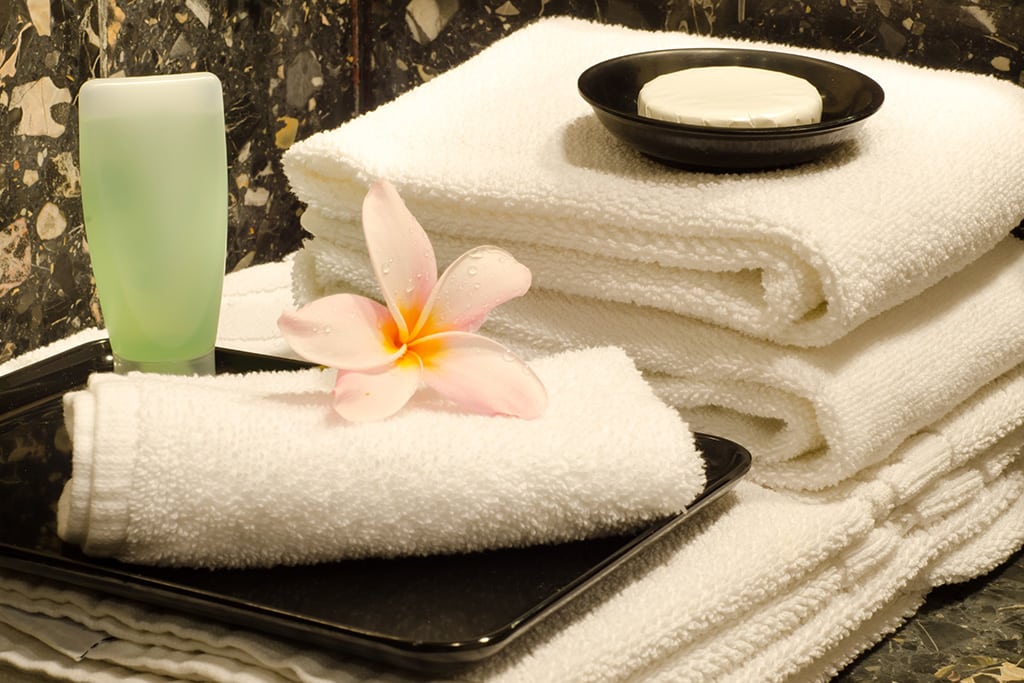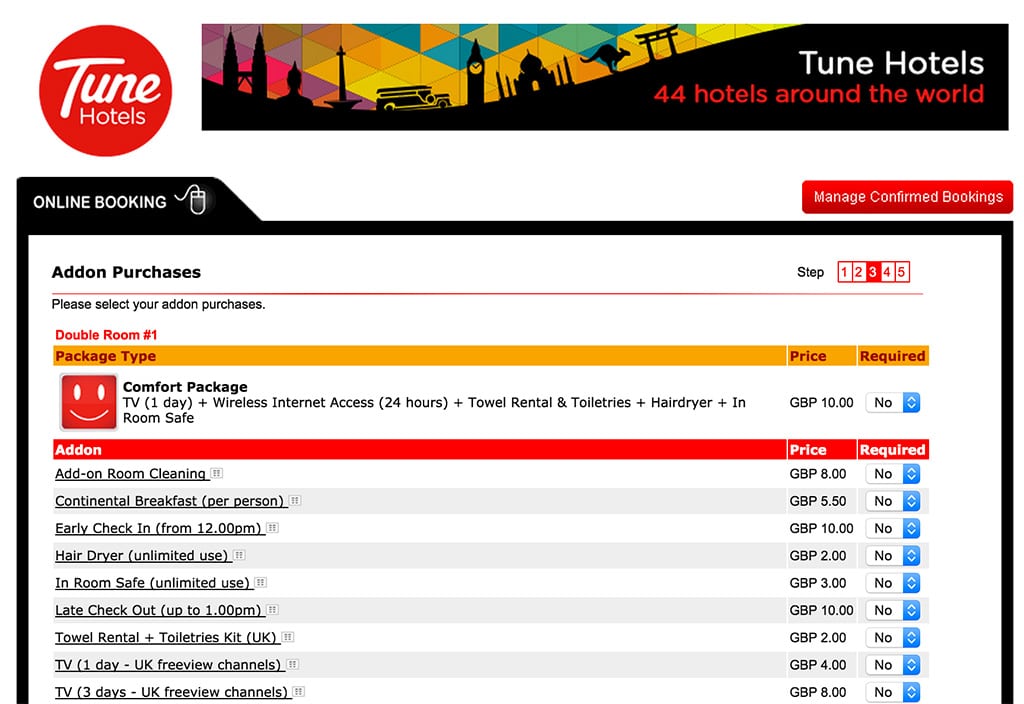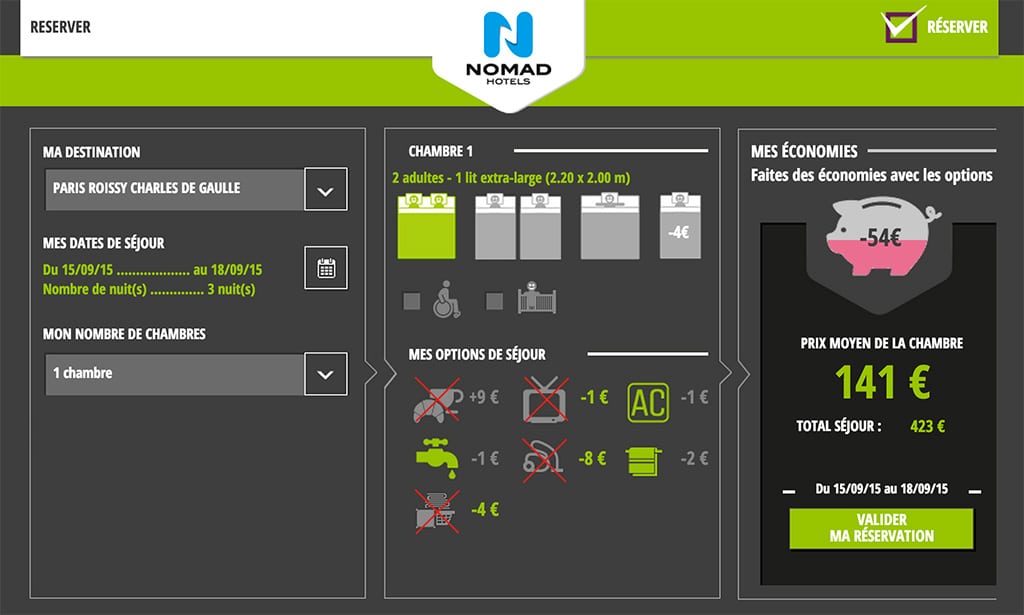Will Unbundled Amenities be the Future for Budget Hotels?

Skift Take
Mid-range hotels are taking a page out of the airline industry's book, unbundling amenities and allowing customers to only pay for the products and services they actually want. Could this "pick and pay" tactic change the way budget hotels do business?
This sponsored content was created in collaboration with a Skift partner.
The mid-range to low-end hotel sector hasn’t had an easy ride of things recently. With the popularity of vacation rental sites like Airbnb growing, hotels have decided they need fresh new ways to compete.
New hotel concepts like Tune Hotels in UK and Malaysia and Nomad Hotels in France could be the answer to this increasingly competitive sector. Stylish and splashy with modern design, these hotels follow in the footsteps of other budget boutique properties like Yotel and Aloft, but they’ve gone one step further by offering "pick and pay" amenities to appeal to budget travelers.
Hotels that offer “pick and pay” let guests economize on their stay by allowing them to only pay for the products and services they really want, such as an internet connection, room cleaning service or an in-room safe.
This approach follows the airline industry’s strategy of “unbundling,” which allows customers to only pay for the products and services they actually want. For airlines, this approach has been profitable, but it hasn’t been without setbacks. For the most part, “unbundling” has gone hand in hand with dwindling levels of customer satisfaction largely related to customers mistakenly assuming certain products come as standard.
How “pick and pay” works in practice
Tune and Nomad have received largely positive reviews so far, proving there’s an appetite for their service. But interestingly, these two hotels have a very different booking process when it comes to amenities.
Tune Hotels begins with the cheapest price possible, offering a “bare bones” room with no amenities included. Guests can choose to add amenities as needed. For their London locations, a towel and toiletries are £2 each, the in-room safe is an additional £3, and TV and WiFi are each £4/day. A “Comfort Package” containing all of the above is £10.

Nomad Hotels reverses this process. By default, guests select a room that comes with almost all available amenities (only breakfast is not automatically included), then subtract the ones they don’t want. No room cleaning? Save €8/day. Bring your own towel? Save €2/day. A piggy bank on the booking page increases as you “de-select” amenities, showing how much you save.

So, which approach shows most long-term promise as a business model?
Tune Hotels base rates are lower than Nomad’s (as a result of their “bare bones” rooms), so on face value at least, they offer a more attractive proposition to customers honing straight in on the price.
But the nature of Tune’s booking system feels somewhat miserly in the way guests have to pay for every amenity they want. And of course, their base rates can only go up, whereas Nomad’s can only go down. Budget-conscious travelers will undoubtedly find something rewarding in seeing their room rates drop every time an amenity is removed.
Nomad Hotel’s booking system also exploits a human tendency that finds the fear of loss greater than the desire for gain—a consumer psychology phenomenon known as loss aversion. Applied to the idea of “subtracting” rather than “adding” amenities, customers would be less inclined to get rid of amenities that in theory, they already have. If towels are included by default, the pain attached to giving them away would arguably be greater than the desire to buy them in the first place.
The future of “pick and pay”
There’s an inherent compromise involved in “pick and pay” amenities that comes with asking guests to pay extra for items that have traditionally come as standard. It seems that any attempt to make the process as transparent as possible will never entirely mitigate the feeling of penny-pinching.
But if vacation rental sites like Airbnb continue to steal market share, there’s a real sense that budget hotels will need to change tactics. So, while hotel "pick and pay" remains in its infancy, it could very well represent the future for how the lower end of the industry does business.
This content is created collaboratively in partnership with our sponsor Travel Tripper.
